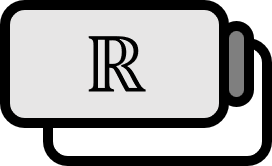Riemann-Stieltjes Integrability is Preserved within an Interval
The following document is based on the Riemann-Stieltjes integral. If set as $\alpha=\alpha (x)=x$, it is the same as the Riemann integral.
Theorem 1
Let function $f$ be Riemann(-Stieltjes) integrable on $[a,b]$. Let us also say $a<c<b$. Then, $f$ is also integrable on $[a,c]$ and $[c,b]$, and the sum of the integration values is equal to the integral on $[a,b]$.
$$ \int_{a}^{c}fd\alpha + \int_{c}^{b}fd\alpha=\int_{a}^{b}f d\alpha $$
Proof
In the first part, we show that $f$ is integrable on the intervals $[a,c]$ and $[c,b]$. In the second part, we demonstrate that the sum of the integrals over the divided intervals equals the integral over the entire interval.
Part 1 $f$ is integrable on $[a,c]$, $[c,b]$
Suppose a positive number $\varepsilon >0$ is given. Then, by the necessary and sufficient condition for integrability, there exists a partition $P=\left\{ a=x_{0},\cdots,x_{n}=b \right\}$ of $[a,b]$ that satisfies the below equation.
$$ U(P,f,\alpha) - L(P,f,\alpha) < \varepsilon $$
And let us say $P^{\ast}=P\cup \left\{ c \right\}$. Then $P^{\ast}$ is a refinement of $P$. Now, let us divide $P^{\ast}$ as follows.
$$ P_{1}^{\ast}=\left\{a=x_{0},\cdots,c\right\} \quad \text{and} \quad P_{2}^{\ast}=\left\{ c,\cdots,x_{n}=b \right\} $$
Then it is evident by the definition of upper sum and lower sum that the following formula holds.
$$ \begin{align*} U(P_{1}^{\ast},f,\alpha) + U(P_{2}^{\ast},f,\alpha)&=U(P^{\ast},f,\alpha) \\ L(P_{1}^{\ast},f,\alpha) + L(P_{2}^{\ast},f,\alpha)&=L(P^{\ast},f,\alpha) \end{align*} $$
Therefore, the following inequality holds. $$ U(P_{i}^{\ast},f,\alpha) -L(P_{i}^{\ast},f,\alpha) \le U(P^{\ast},f,\alpha)-L(P^{\ast},f, \alpha)\quad (i=1,2) $$
Also, since the upper sum (lower sum) of a refinement is less (greater) than that of the partition, the following holds.
$$ \begin{align*} U(P_{i}^{\ast},f,\alpha) -L(P_{i}^{\ast},f,\alpha) &\le U(P^{\ast},f,\alpha)-L(P^{\ast},f,\alpha) \\ &\le U(P,f,\alpha) - L(P,f,\alpha) \\ &< \varepsilon \end{align*} $$
Therefore, by the necessary and sufficient condition for integrability, $f$ is integrable on $[a,c]$, $[c,b]$.
Part 2 $\displaystyle \int_{a}^{c}fd\alpha +\int_{c}^{b}fd\alpha=\int_{a}^{b}fd\alpha$
By the definition of integral, the following inequality holds.
$$ \int_{a}^{b}fd\alpha \le U(P^{\ast},f,\alpha)=U(P_{1}^{\ast},f,\alpha)+U(P_{2}^{\ast},f, \alpha) $$
Also, the following inequality holds.
$$ \begin{align*} U(P_{1}^{\ast},f,\alpha) &< \int_{a}^{c}fd\alpha +\varepsilon \\ U(P_{2}^{\ast},f,\alpha) &< \int_{c}^{b}fd\alpha +\varepsilon \end{align*} $$
Therefore, the following holds.
$$ \begin{equation} \int_{a}^{b}fd\alpha < \int_{a}^{c}fd\alpha+\int_{c}^{b}fd\alpha +2\varepsilon \label{eq1} \end{equation} $$
In the same manner, the following inequality also holds
$$ \begin{align} \int_{a}^{c}fd\alpha +\int_{c}^{b}f d\alpha & \le U(P_{1}^{\ast},f,\alpha)+U(P_{2}^{\ast},f,\alpha) \nonumber \\ &=U(P^{\ast}f,a\alpha) \nonumber \\ &< \int_{a}^{b}fd\alpha +\varepsilon \label{eq2} \end{align} $$
Since $\varepsilon$ is an arbitrary positive number, by $\eqref{eq1}, \eqref{eq2}$, the following equation holds
$$ \int_{a}^{c}fd\alpha +\int_{c}^{b}fd\alpha=\int_{a}^{b}fd\alpha $$
■
Walter Rudin, Principles of Mathmatical Analysis (3rd Edition, 1976), p128-129 ↩︎
